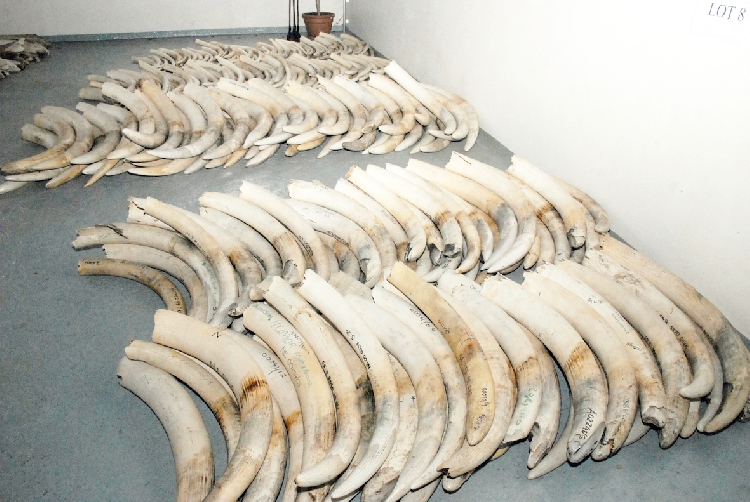• DONALD LEHRTHE African Elephant Coalition (AEC), in a decisive move to reverse the poaching menace facing African elephants, will advocate a permanent ban on international trade in ivory at the 17th Conference of the Parties (CoP17) of the Convention on International Trade in Endangered Species of Wild Fauna and Flora (Cites) which opens on Saturday 24 September in Johannesburg, South Africa.
The AEC comprises 29 African countries representing 70% of African elephant range states.
Standing in opposition are three southern African range states – Namibia, South Africa and Zimbabwe – calling for Cites rules to be relaxed, allowing ivory to be traded legally on a global scale in the future as it was until 1989.
All populations of African elephants were listed on Cites Appendix I in 1989, effectively banning international ivory trade. But the protection was weakened in 1997 and 2000 when populations in four countries (Botswana, Namibia, South Africa and Zimbabwe) were down-listed to Appendix II (a less endangered status) to allow two sales of ivory stockpiles to Japan and China in 1999 and 2008.
The AEC’s package of five proposals would again fully ban international trade in ivory by listing all elephants in Cites Appendix I, close domestic ivory markets around the world, end further debate on a mechanism to legalise ivory trade in the future, improve management of ivory stockpiles and endorse their destruction, and restrict trade in live, wild-caught elephants.
Meanwhile, Namibia and Zimbabwe have submitted proposals to delete the annotation to the Appendix II listing of their elephant populations to allow an “unqualified” trade in ivory. Along with South Africa, they also propose to adopt, without further discussion, a mechanism to permit commercial exports of ivory from Appendix II range states to any importing “partner” states.
But environment minister Pohamba Shifeta says Namibia does not expect discussions on the trading of ivory at the COP 17 meeting starting in Johannesburg next weekto be in its favour.
Shifeta expressed concern at a media conference in Windhoek on Monday that the discussions will follow a similar trend as those at the 2016 International Union for the Conservation of Nature (IUCN) congress that took place in Hawaii, United States of America earlier this month.
Conservation groups at its meeting voted by a 90% majority to pass a resolution, strongly backed by the US, France and AEC countries, urging countries to close their domestic markets for commercial trade in raw or worked elephant ivory.
Shifeta said Namibia opposed the motion, amongst others, because it believes such markets can be regulated if there is sufficient political will and because Namibia feels it has the sovereign right to decide over the use of its own resources. The minister said the country’s ivory stockpile is worth billions of dollars which should be used to benefit all Namibians.
However Rosalind Reeve, senior adviser to Fondation Franz Weber and the David Shepherd Wildlife Foundation, which have been campaigning for a comprehensive ban on ivory trade and the closure of domestic ivory markets was of a different view.
“This is a huge boost for elephants on the eve of the Cites conference,” he said.
The meeting was in effect a dress rehearsal for Cites. Namibia, Japan and South Africa repeatedly tried to dilute the strong language of the motion and at one point walked out of the negotiations. They later proposed more than 20 amendments, all of which were voted down. Notably abstaining from the final vote were Belgium, Germany, Norway and the UK.
While the IUCN’s policies carry considerable moral authority, the organisation does not have legal authority to enforce its resolutions on governments.
“The real decisions to protect elephants will take place at Cites,” says Vera Weber, president and CEO of Fondation Franz Weber. “We hope the IUCN vote will motivate Cites delegates to adopt these proposals submitted by the majority of African governments which will comprehensively prohibit commercial sales of ivory for good, and hopefully halt the catastrophic decline of elephants.”
On 31 August the Great Elephant Census revealed a huge recent decline in savannah elephants, with an estimated 144 000 (30%) lost in 18 African countries between 2007 and 2014, a rate of 8% per year or one every 15 minutes.
The Cites CoP 17 opens on Saturday 24 September following a meeting of its standing committee and a ministerial meeting on Friday 23 September. Committee discussions on issues related to elephants are slated to begin on Monday 26 September. Negotiations continue through to Wednesday 5 October.
Fondation Franz Weber, David Shepherd Wildlife Foundation and Pro Wildlife will be reporting out from Cites CoP17 on a regular basis and are available for in-person or online interviews, expert analysis and background on the negotiations. – Additional Reporting by Nampa
Stay informed with The Namibian – your source for credible journalism. Get in-depth reporting and opinions for
only N$85 a month. Invest in journalism, invest in democracy –
Subscribe Now!






